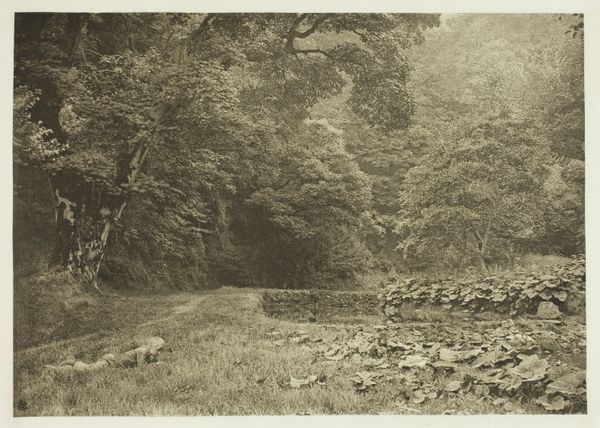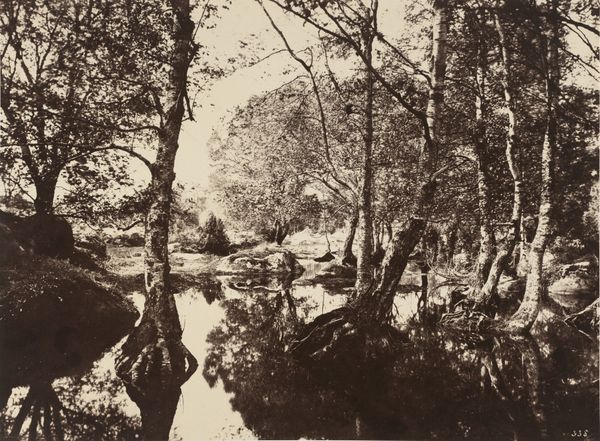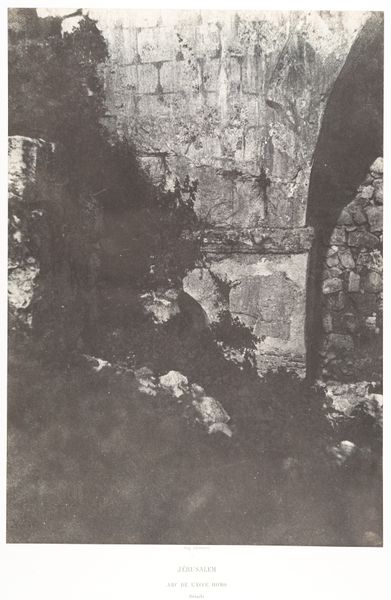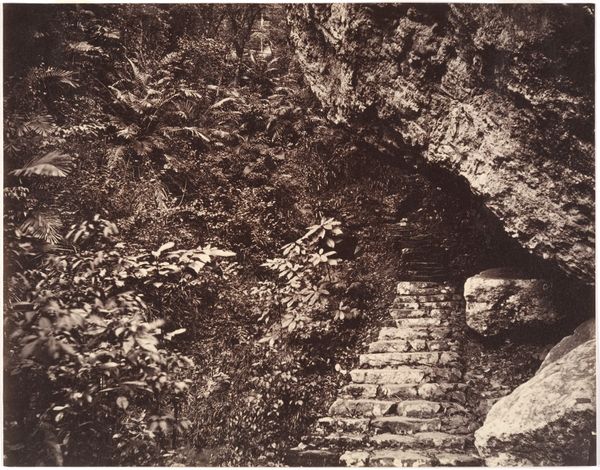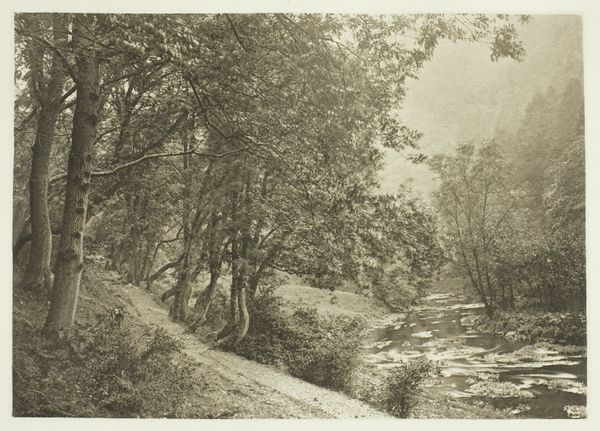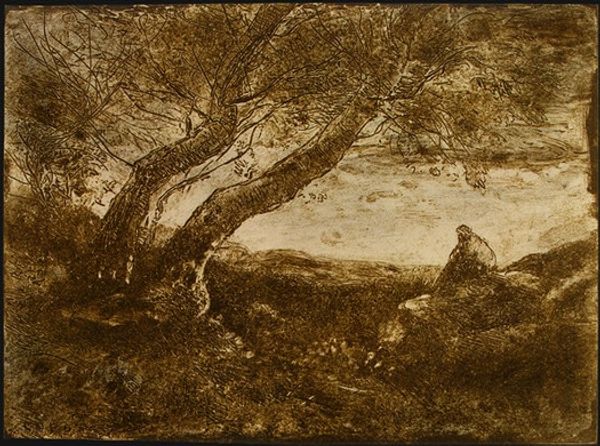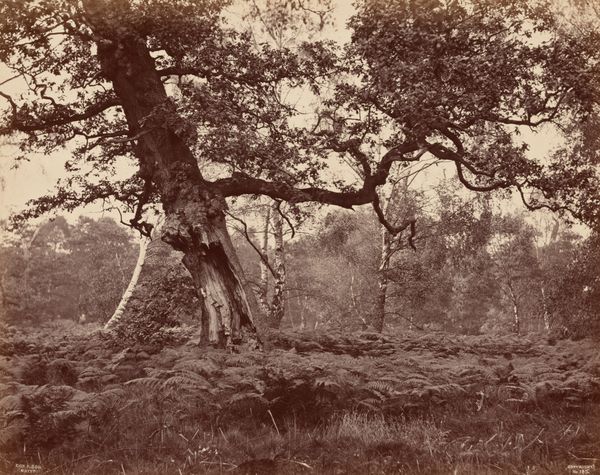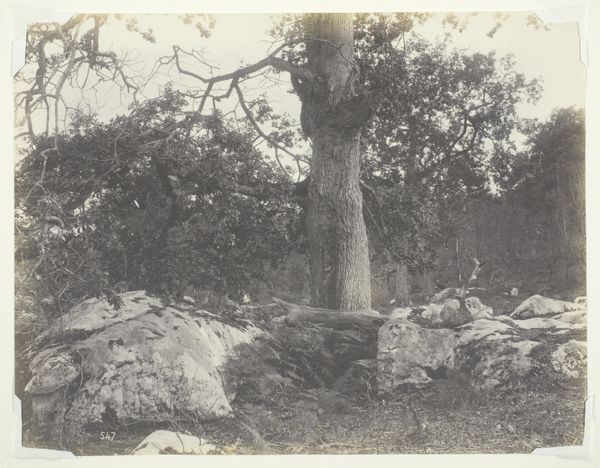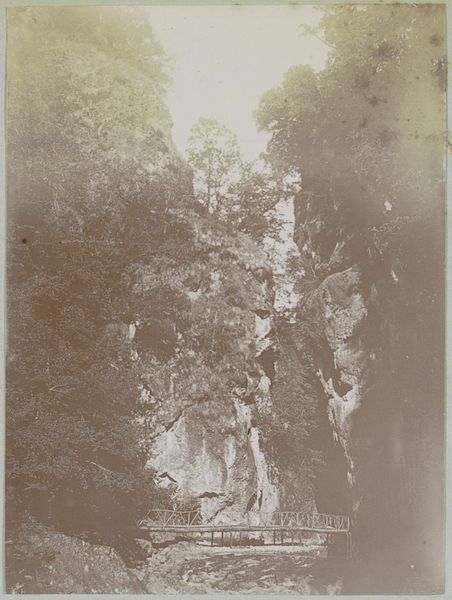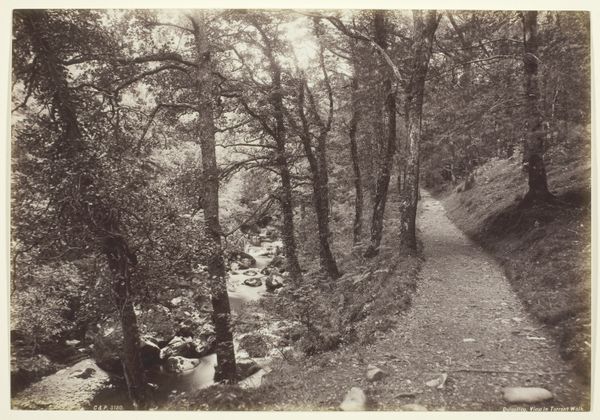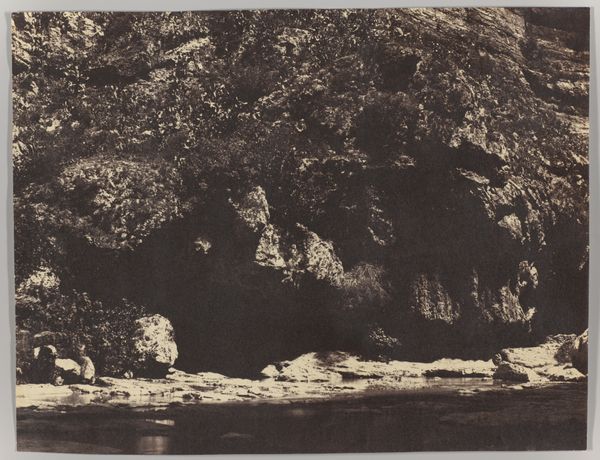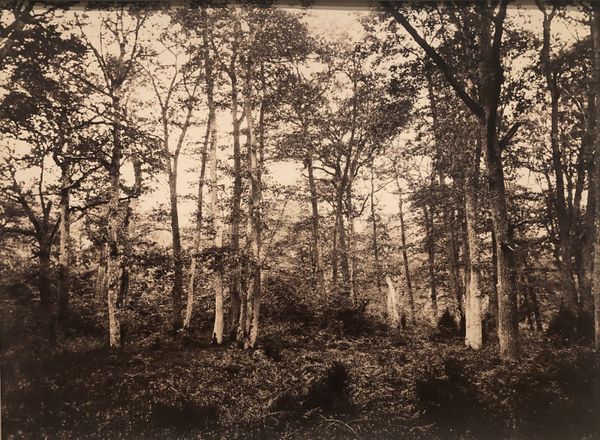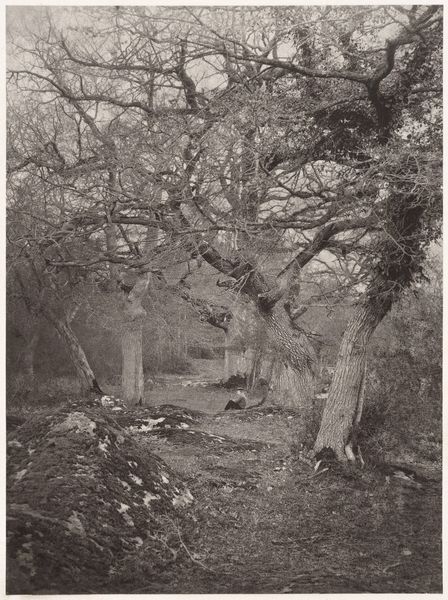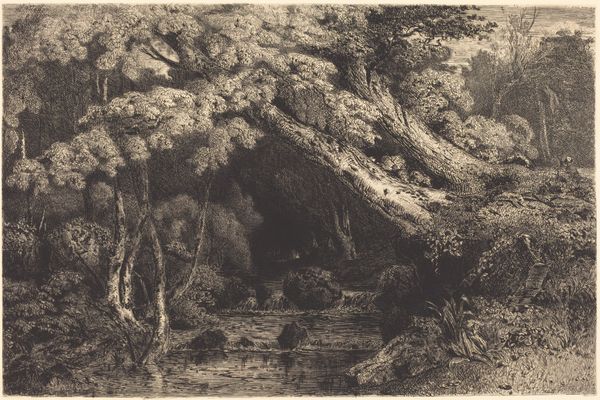![[Oak Tree and Rocks, Forest of Fontainebleau] by Gustave Le Gray](/_next/image?url=https%3A%2F%2Fd2w8kbdekdi1gv.cloudfront.net%2FeyJidWNrZXQiOiAiYXJ0ZXJhLWltYWdlcy1idWNrZXQiLCAia2V5IjogImFydHdvcmtzLzViMmJlOTlhLTBiM2YtNDVkYS05N2ViLTZiNTc3Mzk3MmRhNy81YjJiZTk5YS0wYjNmLTQ1ZGEtOTdlYi02YjU3NzM5NzJkYTdfZnVsbC5qcGciLCAiZWRpdHMiOiB7InJlc2l6ZSI6IHsid2lkdGgiOiAxOTIwLCAiaGVpZ2h0IjogMTkyMCwgImZpdCI6ICJpbnNpZGUifX19&w=3840&q=75)
[Oak Tree and Rocks, Forest of Fontainebleau] 1849 - 1852
0:00
0:00
#
organic
#
natural shape and form
#
natural formation
#
organic shape
#
landscape
#
organic movement
#
nature
#
forest
#
abstract nature shot
#
natural texture
#
murky
#
organic texture
Dimensions: 25.2 x 35.7 cm (9 15/16 x 14 1/16 in.)
Copyright: Public Domain
Editor: Gustave Le Gray’s “Oak Tree and Rocks, Forest of Fontainebleau,” created between 1849 and 1852, presents this almost monochromatic scene. I find it rather brooding, filled with the textures of bark and stone. What strikes you when you look at this photograph? Curator: I see a powerful dialogue between permanence and fragility. The oak, a long-standing symbol of strength and endurance across many cultures, is juxtaposed with the transient nature implied by the dappled light and shadow. It evokes a meditation on time and our place within it. What do you think the lichen clinging to the rocks and tree bark might signify? Editor: Perhaps it's about the coexistence of life and decay? A kind of visual reminder of nature's cycle? Curator: Precisely! And consider the forest itself. Historically, forests are places of myth, mystery, and transformation. By framing the oak within this setting, Le Gray taps into that deep cultural memory. What emotions does this contrast—between a symbol of permanence and a setting of impermanence—evoke in you? Editor: It creates a feeling of wistful contemplation. A sense that even the most solid things are subject to the passage of time. Curator: That's beautifully observed. The photograph doesn’t just record a scene; it invites reflection on mortality and resilience, drawing on our shared understanding of these natural symbols. I learned that photographic methods allow artists to play with perception. Editor: Absolutely, and the photograph itself becomes a symbolic object. I see the landscape in a richer way now.
Comments
No comments
Be the first to comment and join the conversation on the ultimate creative platform.
